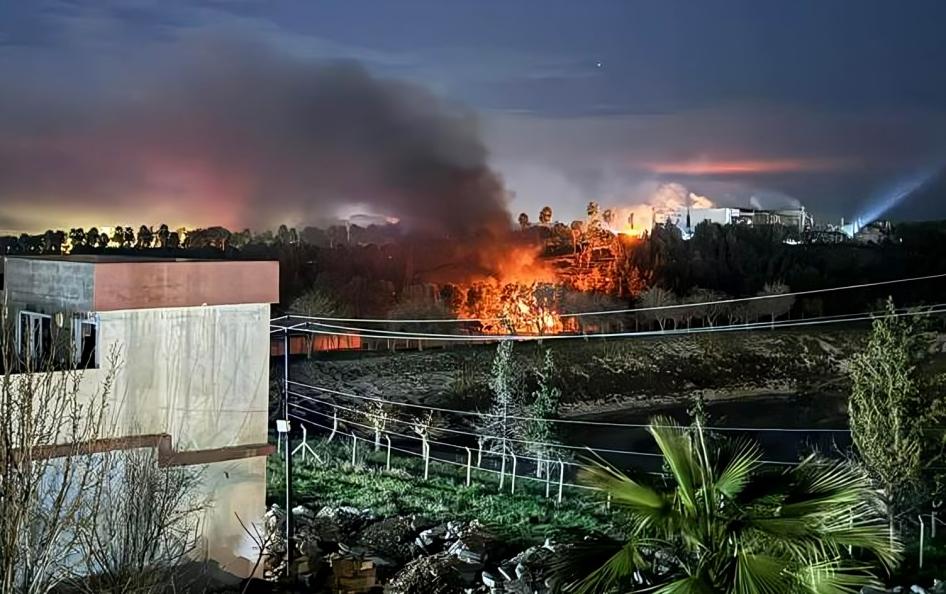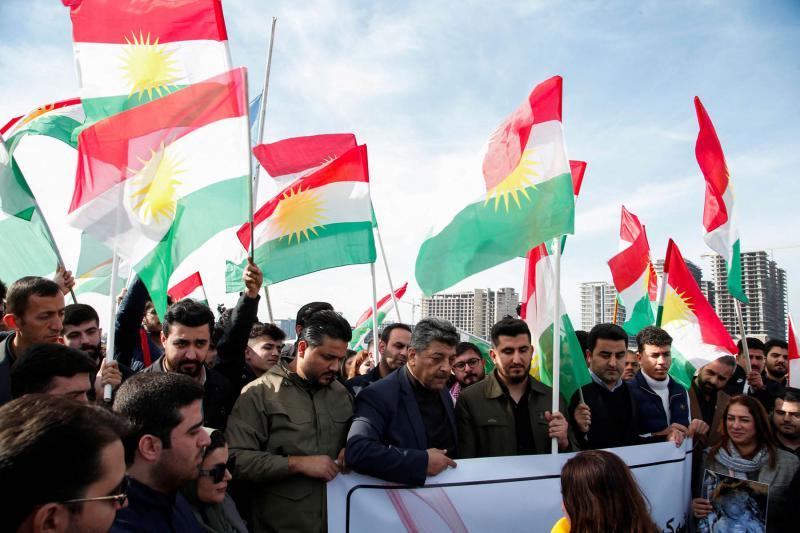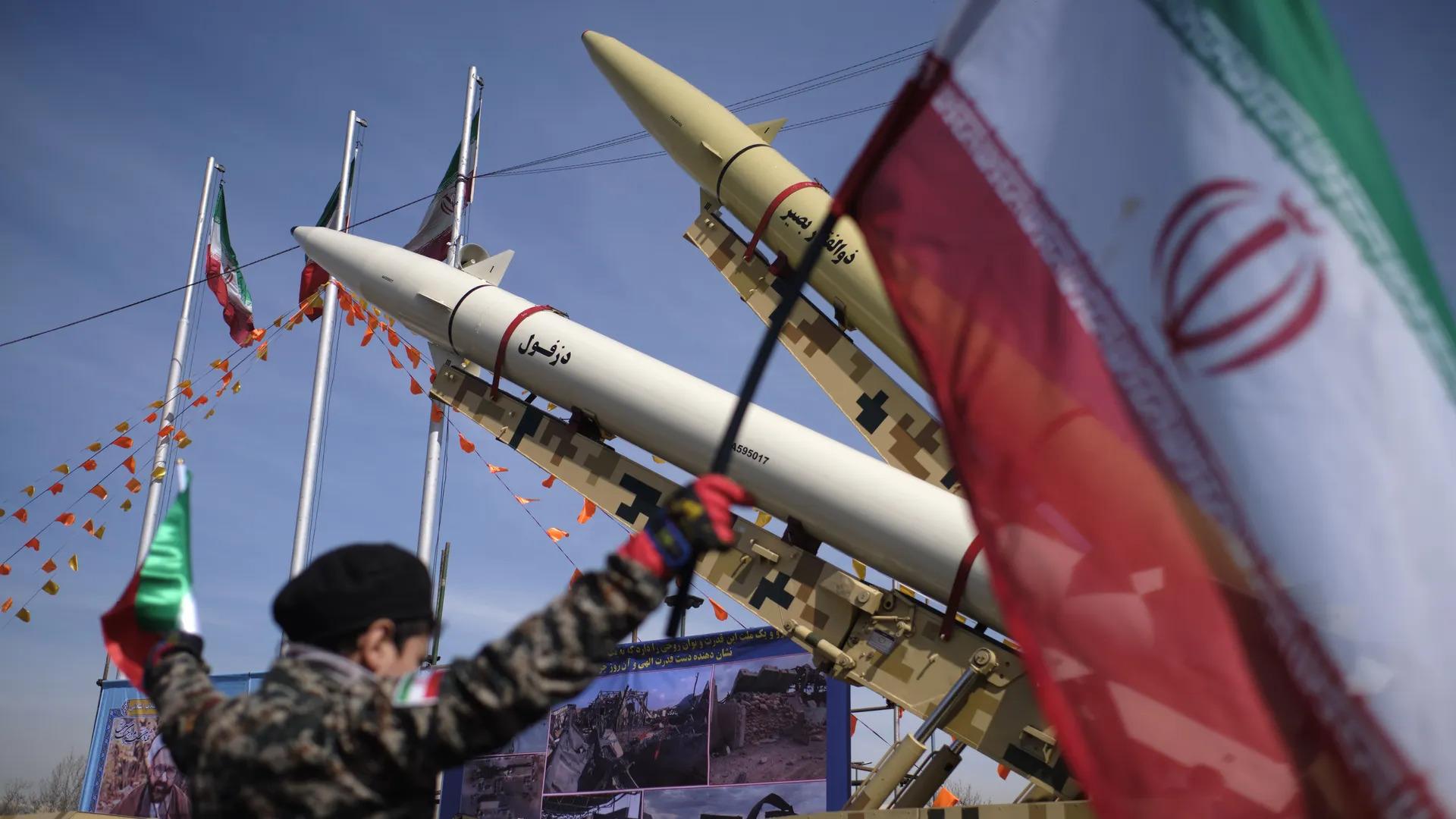What does Erbil’s bombing mean for Iran? Bombing one enemy to quell another
On January 15, Iran’s Islamic Revolutionary Guards (IRGC) launched ballistic missiles at what it described as enemy sites in Erbil, a city in the Kurdish region of northern Iraq, to "destroy espionage centers and gatherings of anti-Iranian terrorist groups in the region.”
Reportedly, four people were killed and six others wounded in the attack, including the renowned Kurdish businessman Peshraw Dizayee, whom Iran accused of being a Mossad-linked figure. There are unconfirmed reports that some missiles landed near the US-led International Coalition Headquarters & the US consulate in Erbil.
The Revolutionary Guard issued several communiques saying that the ballistic missile strikes were in retaliation to “recent crimes of terrorist groups in killing innocent compatriots in Kerman and Rask.”
The IRGC also hit targets in Syria with ballistic missiles, including the "gathering places of commanders and main elements related to recent terrorist operations, particularly the Islamic State group."

Iran's move came shortly after the US-led coalition conducted a precise air strike on Houthi rebels based in Yemen for their systematic attack on commercial vessels in the Red Sea.
Recently, the tensions between the West and Iran, including its proxy groups in the Middle East, heightened dramatically in light of the Israel-Hamas war. Israeli force's ambush on Hamas in the Gaza Strip completely erased Hamas's military infrastructure and led to the intensive bombing of Hezbollah military facilities in southern Lebanon.
As such, renewed actions of Houthi rebels in the Red Sea and pro-Iranian militias in Iraq were perceived as Iran's attempts to open new fronts against Israel and its partners. Iran has been in the business of sponsoring Iraqi paramilitary proxies for 30 years, practically the government’s entire existence.
Therefore, missile attacks on Iraqi Kurdistan by the IRGC are more than a simple coincidence. For many years, Iran accused Iraqi Kurdistan of its close ties to Israel and of accommodating Israel's Mossad in closer areas to Iran's borders. Moreover, Iran has long viewed the Kurdish issue as a real threat to its domestic security.

For many years, Iran faced harsh Kurdish separatism and has refused to consider local autonomy for the province. In November 2022, Tehran even went further, accusing Iraqi Kurdistan of supporting and arming Kurdish separatists in Iran. As such, the commander of the IRGC, Esmail Qaani, visited Iraq to attend high-level meetings and push the official Baghdad to disarm the Kurdish militant groups.
However, the strained relations with Erbil led to Iran's missile attacks in 2022, targeting the towns of Koya and Bahrka. At the same time, the IRGC deployed helicopters and rows of military vehicles and machine guns to the Iranian Kurdish cities of Boukan, Mehabad, and Javanroud to quell the protests.
As in the case of recent attacks, in 2022, Iran claimed that the IRGC-led missile attacks on Iran’s immediate neighbourhoods were aimed at destroying “Israeli intelligence centres” based in the region, although these claims have been dismissed as wholly unbelievable by many international observers.

Indeed, Iran’s frequent missile attacks on Iraq and Syria, where the US troops are stationed, is an act of intimidation. The aim is to exert more pressure on the US troops and Israel amid rising fears of conflict spillover. Many analysts, however, argue that Iran's primary goal is to preserve regional influence, particularly in Shi'a-dominated Iraq, as it's the core part of the so-called Shia Axis.
Moreover, growing discontent at home also risks spreading a new wave of regional tensions between Iran and parties at the Iraqi parliament that could weaken Iran’s influence within Iraq, a development that would further strain Tehran’s limited resources.
The ongoing Israel-Hamas war indeed complicates the regional security in the Middle East for all state and non-state actors. Iran seeks to maintain a leading role in the region through its destructive proxy groups, while the US demonstrates firm support to Israel during the Gaza operation despite objections of Arab partners.
As a result, the divided region fell under a new wave of deadly escalation with the involvement of numerous non-state actors like Hezbollah, Hamas, Houthi rebels, and recently, Kurdish rebellion groups.








